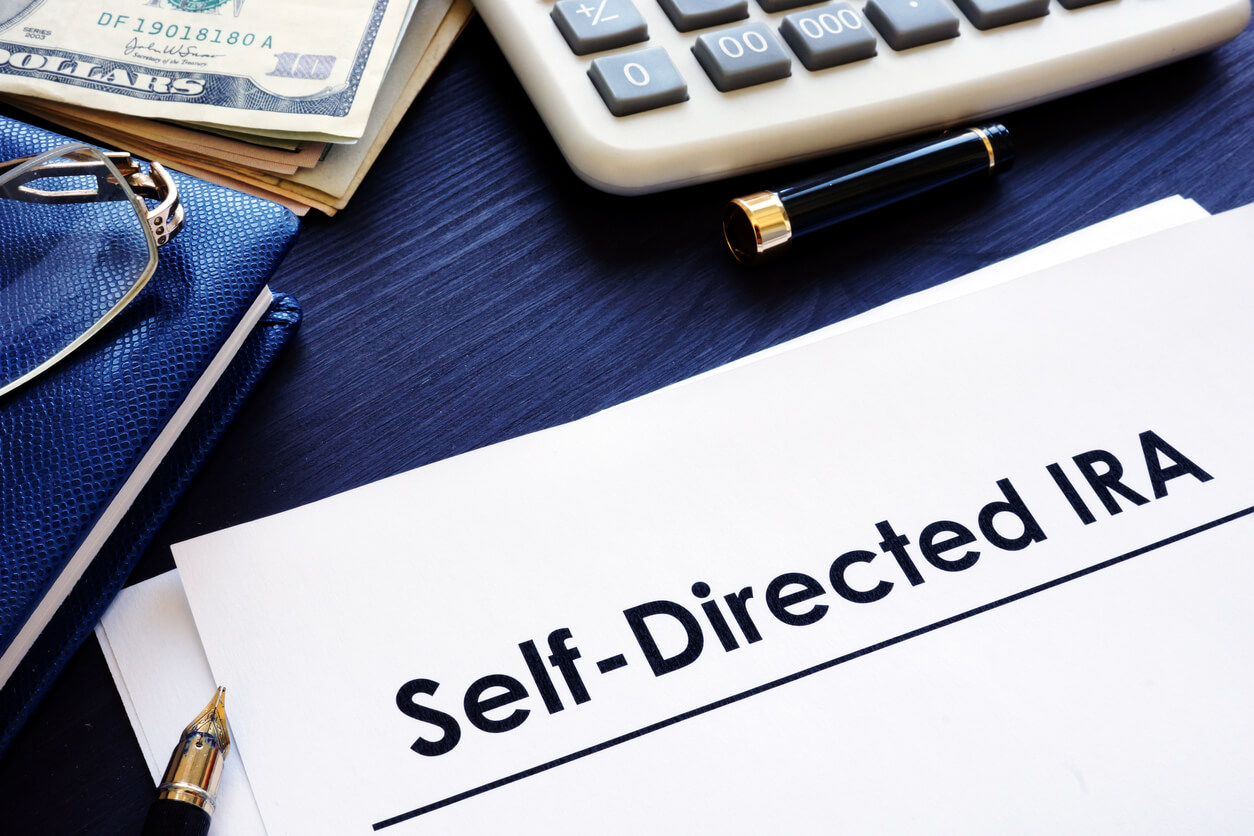IRA Accounts - What They Are and How to Choose the Right One?
An IRA account (individual retirement account) is a type of 401k or pension that is offered by financial institutions to support retirement. It is designed to help people save for retirement while enjoying tax advantages. In essence, an IRA manages investments acquired with earned income for the benefit of the taxpayer after retirement.
IRAs can be set up with many different investment options. You can invest in a variety of stocks, bonds, exchange-traded funds, and mutual funds. You can also choose a self-directed IRA, which gives you more control over the investment process and allows investors to have control over their precious metal assets. However, a self-directed IRA can be more difficult to set up than a traditional IRA. This is why a the services of a gold ira broker is usually utilized to suport the process.
Spousal IRAs
If you have a non-working spouse, you can also set up a spousal IRA. This allows the non-working spouse to contribute to the IRA without incurring the same tax burden as the working spouse. With this option, the non-working spouse can avoid the 10% tax on early distributions from an IRA. The spouse can also rollover the funds into a different retirement account.
How IRAs Increase in Value?
The government hopes that the money in an IRA will compound over time. This means that, eventually, the money will be there for you to support your retirement. However, unlike other retirement plans offered by employers, you cannot take out loans against your IRA.
There are different types of IRA accounts. There are Roth IRAs, SEP IRAs, and Traditional IRAs. If you have high income, a traditional IRA is the best option as this type of account will allow you to take advantage of the lower withdrawal rates. You can also take advantage of future tax rate drops, although a traditional IRA may not be the best option for those with low incomes.
Self-directed IRA accounts allow investors to make alternative investments in their retirement savings and they are often used as a supplement to traditional retirement plans. Using the right tools and strategies, self-directed IRAs allow individuals to control their retirement accounts independently.
Investing in alternative assets can be risky. It's important to consult a licensed investment professional or an attorney before making a decision. This is even more important if the investments are made outside of traditional financial institutions. Investors should also consult with their state securities administrator to ensure that their funds are safe.

Self-directed IRAs also have restrictions, and you must follow IRS rules when you deal with them. It is important to note that you cannot use your IRA to purchase property for personal use, or pay someone else to operate your assets. If you do any of these things, you may face significant penalties from the IRS. They can void your IRA, causing you to face a hefty tax bill and losing all future tax benefits.
If you're looking for a new way to invest your retirement funds, self-directed IRA accounts are a great alternative to traditional brokerages. They can even provide a more diverse portfolio for your retirement. However, it's important to consult with your financial adviser or a gold ira company expert about the pros and cons of self-directed IRA.
Who is a Self-Directed IRA account for?
Self-directed IRAs may be a good option for those who are willing to take on more risk and are looking for an aggressive, hands-on investment strategy. They can be particularly helpful for people in specialized industries where traditional investing is not appropriate. For instance, some types of alternative investments are illiquid, so they're difficult to value. Therefore, working with a licensed custodian may be more appropriate for investors in this category.
Investing in alternative assets with a self-directed IRA is a good choice for those who are knowledgeable and know what they're doing. However, self-directed IRAs come with a greater level of responsibility. For example, an owner of a self-directed IRA must carefully vet potential investment opportunities and avoid prohibited transactions. While there are pros and cons for using utilizing self deirected IRAs, speaking to a specialist broker or company with experience in this area is a important before proceeding.
Traditional IRAs are a type of individual retirement arrangement (IRA). The ERISA, or Employee Retirement Income Security Act of 1974, created the traditional IRA which has made it easier for people to set up their own retirement plans.
Traditional IRAs allow you to make tax-deductible and nondeductible contributions. You also receive tax-deferred growth on your investments. However, the money in traditional IRAs is not tax-free. It must be withdrawn at some point, and you should carefully consider the tax status of your new traditional IRA before making a transfer. While traditional IRA transfers to another traditional IRA are generally tax-free, transfers to a Roth IRA will be taxable.
Features of a Traditional IRA
When choosing between traditional IRA and Roth IRA accounts, consider your entire financial situation before making a final decision. Make sure you're covered by a retirement plan through work. If not, consider the tax advantages of other types of IRAs before making a final decision.
Tax-deferred growth is one of the most attractive features of traditional IRAs. The tax deduction can be large, particularly for taxpayers with low incomes. Additionally, tax-deferred growth increases the value of your investments, and a $100,000 investment in a tax-advantaged account can double in value.
Withdrawals from traditional IRAs will be taxed according to your current income tax bracket. However, if you withdraw the money before age 59.5, you will be required have to pay income taxes on the money withdrawn. Also, medical expenses do not trigger this tax.
Traditional IRAs are the most popular type of retirement savings account. Contributions are tax-deferred until you withdraw them, and you may be eligible for a tax deduction for a portion of your contributions. Savings accounts and Certificates of Deposit are also considered traditional IRAs an you can open an IRA with a bank, brokerage, or robo-advisor.
If you're looking for a way to save money for retirement and get tax-free distributions, consider a Roth IRA. With these accounts, you will earn tax-free growth, and distributions are tax-free. However, there are areas to take into consideration when you're choosing this type of account.
Your risk tolerance and investment preferences will determine the type of Roth IRA you choose. If you're an active investor, you may want to choose a provider with lower trading costs. You may also want to avoid those that charge inactivity fees. Additionally, some providers have a broader range of stocks and ETFs than others.
There are a few restrictions on when you can withdraw money from a Roth IRA. You have to make at least 7.5% of your AGI to qualify for a tax-free withdrawal. This requirement is the same for prior years and the year you withdraw money. However, if you've lost your job, you can still use your Roth IRA distributions to pay for your medical insurance. In addition, you can use your Roth IRA for qualified higher education expenses. These expenses include tuition, books, supplies, and equipment. You do, however, need to be at least 59.5 years old to make qualified withdrawals.
Who is it For?
Roth IRA accounts can also be a great option for young investors. The key to this type of account is knowing how much money you can contribute to it. Unlike employer-sponsored retirement plans, contributions to a Roth IRA are not tax-deductible until a person has earned $150,000 or more. Depending on your income, you may need to convert a traditional IRA to a Roth IRA before you reach the income limits.
Benefits of a Roth IRA
The are many benefits of a Roth IRA. It's tax-free and penalty-free withdrawals are one of the biggest reasons to choose one. These accounts can also be passed down to your children and grandchildren. However, they come with restrictions, for example, it is important to know how much money you can contribute to a Roth IRA and how much money is allowed in them.
Another major benefit of a Roth IRA is the ability to take advantage of lower tax rates in your later years. If you have the means, many experts have suggested investing in a Roth IRA now. This will allow you to take advantage of the low tax rates available now. In addition, once you reach retirement age, your withdrawals will not taxed.
A SEP IRA (simplified employee pension) is a type of retirement account that is adopted by business owners to provide retirement benefits to their employees. This type of account is relatively easy to set up, and there are many benefits to using this type of account. However, it is important to understand how it works before you start your own SEP IRA.
To make SEP IRA contributions, employees must be at least 21 years old and have been employed for at least three years. They must have at least received at least $750 as a salary 2023 in order to be eligible for the plan. Employers can also make eligibility requirements more or less restrictive than what is required by the IRS.
A SEP IRA is tax-advantaged and it is often rolled into another tax-advantaged account, such as a 401(k), 403(b) or 403(f). A Roth IRA, on the other hand, allows employees to contribute money after-tax. A SEP IRA beneficiary must pay income tax on the money they transfer from an SEP to another tax-advantaged account in the year they roll it over.
Contribution Limits
A SEP IRA allows employees to contribute up to 25% of their compensation and this limit increases every two years. In 2023, you can contribute up to 25% of your total salary or a maximum of $66,000 for the 2023 tax year.
The SEP IRA is easy to administer and can be combined with another IRA to maximize the amount of contributions.
If you decide to withdraw your SEP IRA, consider the rules before taking the first withdrawal. Withdrawals are subject to an early withdrawal penalty and income tax, but there are exceptions for medical expenses, home purchases and higher education.
While SEP IRAs are similar to personal IRAs, they are better suited for smaller businesses and those with few employees. As the business grows, the SEP can get costly, especially if there are a lot of employees.
Gold IRAs (Individual Retirement Accounts) are an increasingly popular way to invest in gold and diversify retirement portfolios. Their tax-advantaged status give investors the opportunity to add physical gold to their accounts. They also provide investors with a unique way to grow their retirement savings.
A gold IRA, is a special type of retirement account that allows investors to hold physical gold in their accounts. The gold purchased in a gold ira account can be stored in the form of coins, bars, or other forms of bullion. Gold IRAs are also often used as a way to diversify retirement portfolios.
They are similar to traditional retirement accounts in many ways, however, they differ in how gold can be purchased and held. Investors interested in setting up a gold IRA account must first set up a self-directed IRA. This type of account is established at a financial institution that allows investors to control their own investments choices. Once the account has been set up, investors can choose to purchase their precious metals.
How a Gold IRA Company Can Help?
Not all gold coins are eligible for purchase through a Gold IRA and it is important to research the types of coins that are eligible before you invest. You can do this by working with a reputable gold dealer or gold ira company who specialize in the purchase of gold with a gold ira.
Investors should do their research when choosing a gold ira company. They should look for companies that have experience in the gold investing market and offer a variety of services, including storage, secure shipping, and insurance.
Gold IRAs abide by many of the same rules and regulations as other types of IRAs, but they focus on physical products.
Investing in Gold with a Gold IRA
There are a numbers of points that you should keep in mind when investing in gold with a gold IRA. Firstly, carry out extensive research by visiting review sites and reading customer reviews, to get a clearer picture of which companies are trustworthy. These sites include Facebook, Google Business, Yelp, and the Better Business Bureau. You should also look for companies that are accredited by the Business Consumer Alliance or the Better Business Bureau.
While some brokerage firms do not offer gold IRAs, there are also gold custodians that specialize in these accounts. These companies will handle all the tax reporting and paperwork for your gold investments. They will also help you handle storage needs. The IRS does not allow you to store IRA purchased precious metals in your own home.

Costs of investing in gold with a gold IRA
Setting up a gold IRA account is an excellent way to diversify your investment portfolio. A disadvantage in investing in gold with a gold IRA account is that it will incur costs. For example, you don't receive tax-advantaged income from gold bullion and you also cannot take advantage of the tax-free growth associated with IRAs. Also, Gold IRA holders don't have the convenience of keeping their gold at home. They must instead store the precious metals with a custodian and these custodian fees cn be higher than the costs of regular IRA management.
Gold is considered a safe asset and has historically appreciated in value. However, the price of gold can plummet suddenly. This makes it important to carefully monitor the price of gold. In addition, you must be aware of the risks associated with gold investing.
Tax implications of investing with a gold IRA
An investor should be aware of the tax implications of investing in gold. History has shown that gold can increase diversification and provide protection against inflation. There are, however, some tax implications involved with gold investing.
As gold does not pay dividends or interest, a gold IRA does not generate a passive income. Instead, it produces capital gains.
Investment options for investing with a gold IRA
A gold IRA is a type of self-directed IRA that allows individuals to invest in gold and other tangible assets. It has all the benefits of a traditional IRA, including the tax benefits and contribution limits. However, the IRS has implemented additional tax reporting requirements for gold IRAs. This is an alternative option, particularly for self-employed individuals and small business owners. These IRAs offer investors the opportunity to diversify their portfolios and protect themselves from inflation.
While gold isn't a liquid asset, it can be an excellent option for investors who want to build a stable nest egg in retirement. However, physical gold isn't an investment for the faint of heart. This asset type is best suited for long-term investments, which is an ideal characteristic for an IRA. Generally, IRA assets are held for decades, and gold is no exception. As a result, investing in gold with a gold IRA requires a great deal of knowledge about gold and its use in financial and retirement planning.
In Summary
Overall, the best option for potential investors in gold, is to work with experts to manage the process, especially when considering using the gold ira route. Do you due diligence and contact companies or brokers who can support with this process. Many of them provide free investor kits for you to use use when analyzing your options.
Finding a good gold ira investment company can very often be a challenge as there are so many of them around. The good news is that many of them provide free guides on how to invest in gold and how they can support the process.
Our team have carried out a comprehensive review of some of the best companies on the market. We have looked at their fees, educational resources, customer support and how easy it is to set up an account.
We do however recommend accessing their investment kits to review their services and expertise. This will enable you to see which one suits your needs to add to your current portfolio.
